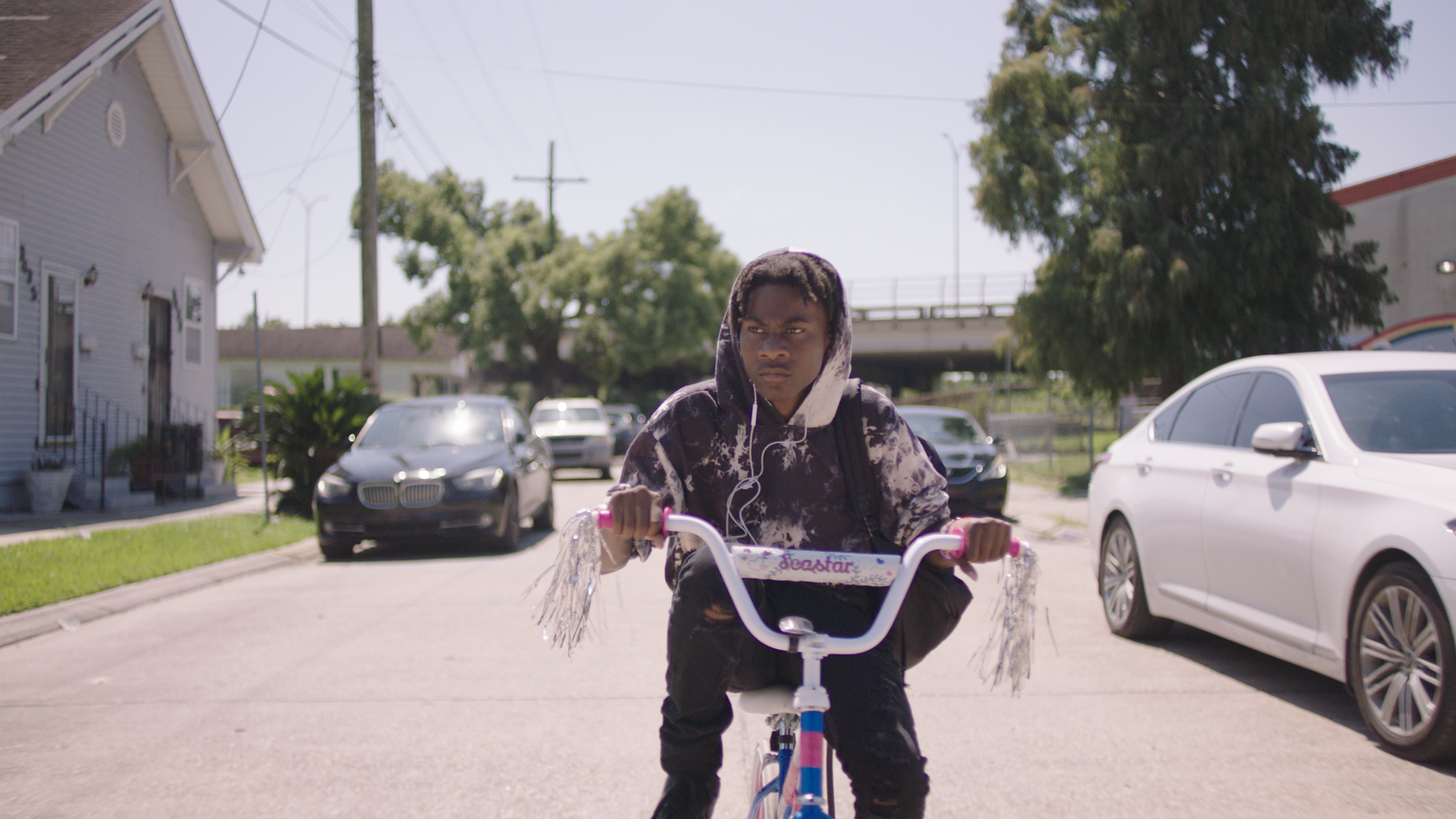Piloting a New Program: Happy Birthday, Leonard
By the end of the pilot, many participants said the film “teaches you that everyone is going through something even if you don’t realize it”
Our Adolescent Health team has worked diligently in collaboration with our Communications and Research & Evaluation departments to pilot IWES’ latest teen health initiative! We’re developing a new program based around our newest narrative short film, Happy Birthday, Leonard, which is designed to increase condom use among youth involved or at risk of being involved with the juvenile justice system. It also explores the impacts of emotional well-being and healthy and unhealthy relationships on safer sex practices, and helps youth identify healthy coping mechanisms to process stress and trauma. Through funding from the Policy & Research Group’s (PRG’s) Juvenile Justice Innovation & Impact Network (JJIIN), IWES has taken the past year to develop this entertainment education film and subsequent curriculum in collaboration with youth in and outside of the juvenile justice system on our Youth Advisory Board, a process which you can review in more detail here. The film was shot last October, and we’re proud to feature new and seasoned talents from the local film and television community as stars of this newest piece!
Beginning in January, staff reviewed the first major cut of the film and began meeting to develop lessons that would engage students in trauma-informed sexual and reproductive health content. We created a two-module curriculum designed for a one-time session, and modeled the program with about 15 public health professionals and young adults to solicit feedback about its feasibility, resonance, and relevance. After incorporating feedback from that session, we were finally ready to pilot the intervention at the end of March! We’re excited to announce that through partnerships in New Orleans and Baton Rouge, we piloted the film at three sites—Thrive Academy in Baton Rouge, Covenant House New Orleans, and the Juvenile Justice Intervention Center—the last week of March, with a total of forty-seven participants.
Each session was three-hours and it flew by quickly as youth engaged in lively conversations about the protagonist Leonard’s relationship with his family, teachers, and girlfriend. Many participants could see themselves experiencing similar issues as Leonard, and they felt like they could relate to him in many ways. In addition to reflecting on the storyline, we also discussed birth control methods, did condom demonstrations, and held small group discussions on healthy communication styles, all themes that were included in the film. Plus, participants received a workbook and resource guide that includes sexual health information and mental health resources with information such as where to receive STI testing, and where to access mental health services.
By the end of the pilot, many participants said the film “teaches you that everyone is going through something even if you don’t realize it,” and that “mental health takes a big part of everything in life, even with sex.” Participants also said the activities following the film helped them think differently about communication and how to engage in safer sex. One benefit of the program is that it addresses barriers that our community identified in our annual BY-LA 2.0 Community Assessment. Those benefits include recognizing the importance of mental health in sex education; having the ability to offer sex-ed/reproductive health programs at non-traditional sites that don’t have the time to host lengthy, multi-week implementations; and, addressing the lack of awareness of where young people can get help for both mental and reproductive health concerns.
Now that piloting has ended, our evaluation team here at IWES and the evaluation team at PRG are analyzing the qualitative and quantitative data we collected during the implementations to evaluate the program’s desired impact and effectiveness so that we can make adaptations to enhance its efficacy. We dream of expanding this program outside of the state of Louisiana and making it available as an evidence-based intervention for youth throughout the United States and beyond. Therefore, we’re partnering again with PRG to apply for the Office of Population Affairs’ new funding opportunity entitled "Teen Pregnancy Prevention Tier 2 Rigorous Evaluation Cooperative Agreements.” This opportunity supports evaluations of both impact and implementation for promising approaches to prevent teen pregnancy and related risk behaviors, so receiving this award would allow us to rigorously test out the program in sites around the country to see how well it improves the knowledge, confidence, and usage of safer sex practices amongst youth who complete the intervention.
Keep up with IWES to see if we’re awarded this opportunity, and to find out if an implementation of the new program will be available in your area any time soon!
“Mental health takes a big part of everything in life, even with sex.”
—Happy Birthday, Leonard program participant quote





